It’s that time of the year — let’s talk about seasonal depression in the Netherlands. Mental health in the Netherlands is a topic that we discussed before, but today we want to focus on Seasonal Affective Disorder or SAD.
Before we dive into the topic of Seasonal Affective Disorder (SAD), please consider contacting your GP as soon as you can if you or someone you know is exhibiting very serious symptoms of a breakdown or could potentially harm themselves or people around them.
You can also call these helplines:
- Suicide prevention Netherlands: 0800 – 0113
- Samaritans: 0602 222 88
We can also understand the nervousness and anxiety you must feel when moving to a new country with an already existing mental or physical health issue.
If you want to know everything about healthcare and health insurance in the Netherlands, check out our guide. You can also find out everything you need to know about mental healthcare in the Netherlands here.
Seasonal Affective Disorder (or SAD)
Have you ever had the feeling that you’re entering into hibernation mode during the winter months, where you sleep either too much or too little, eat way too much or too little, and avoid social gatherings because you seriously lack the energy to get out of your house?
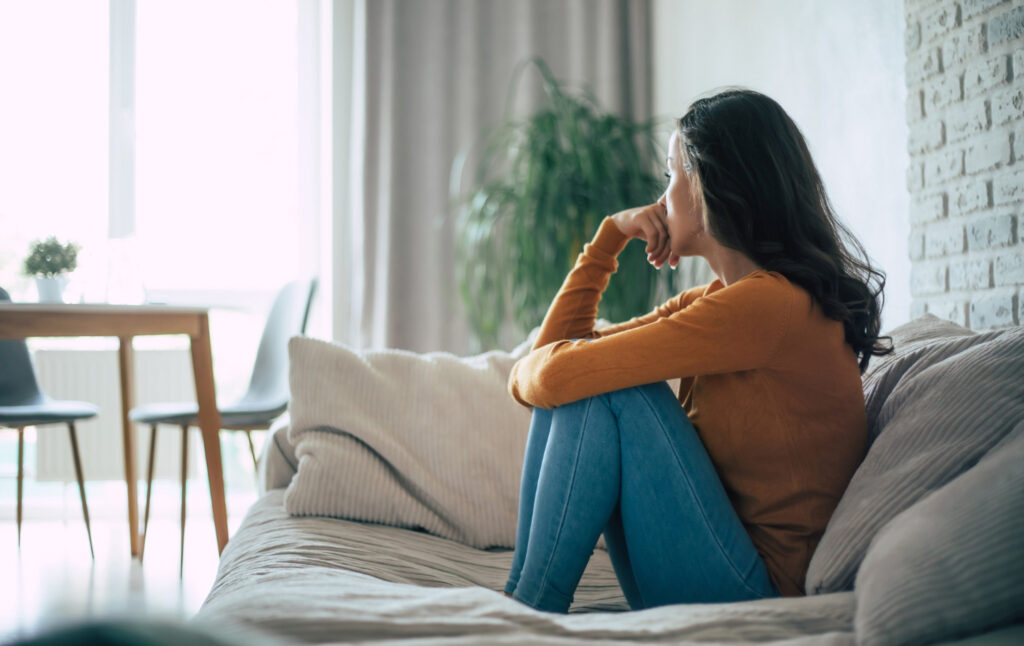
You might tell yourself that you just can’t be bothered to go out because it’s too cold, or that you prefer your own company. Even running necessary errands like going to the grocery store becomes a chore, and the things on your to-do list just keep getting longer.
If you feel like this in the colder months of the year, then you might have Seasonal Affective Disorder, or SAD for short.
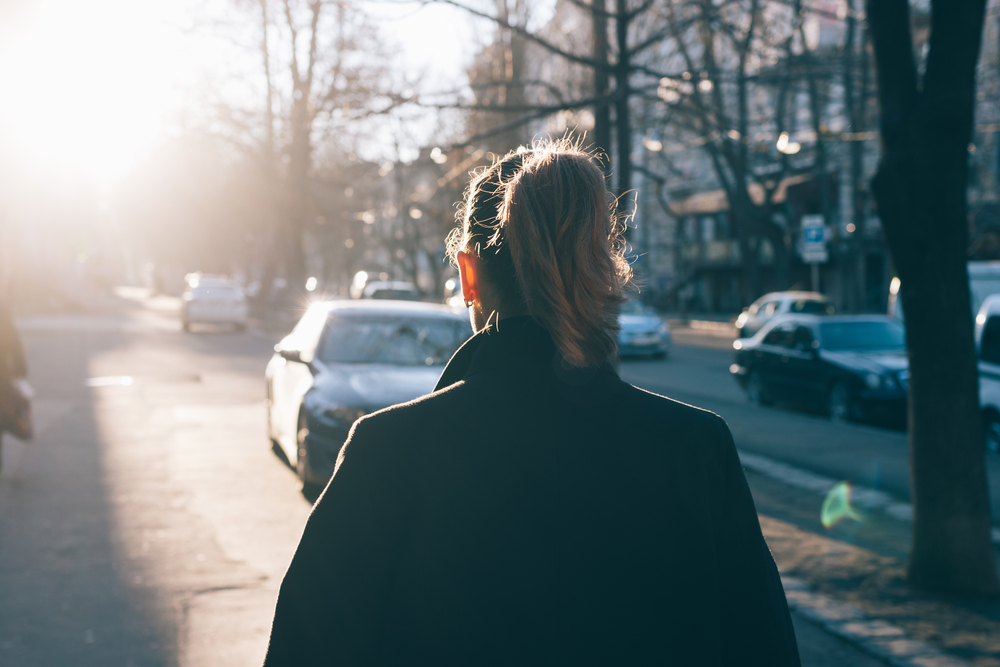
Although it’s different from depression, it is more common among those with a pre-existing depressive disorder. People with SAD usually show symptoms during late autumn or early winter and resume normal mental health during the spring and summer.
There are also cases where the symptoms begin in spring or summer. This disorder makes the person exhibit mild to moderate depressive symptoms, which start to get more severe as the season continues.
Symptoms of seasonal affective disorder
According to Mayo Clinic, the symptoms of SAD include but are not limited to:
- Feeling depressed for most of the day on most days
- Lack of motivation or interest to do things you once enjoyed
- Lack of energy
- Lack of sleep (insomnia) or sleeping too much
- Eating too much or too little
- Fatigue
- Finding it hard to focus
- Feelings of hopelessness or guilt
- Suicidal thoughts or thoughts about death
Some symptoms are specific to winter and autumn depression and may include:
- Oversleeping
- Change in appetite and craving more carbohydrate-rich foods
- Gaining weight
- Feeling tired all the time
Other symptoms are specific to summer and spring depression and may include:
- Insomnia
- Loss of appetite
- Leading to weight loss
- Restlessness or anxiety
What causes SAD?
SAD was first mentioned in medical literature as early as 1845 and was dubbed as such only in the 1980s. The causes of this disorder are yet to be established. However, there is a correlation between SAD and a lack of light.
Without getting bogged down with too much medical terminology, the important terms to know about are the hypothalamus, the part of your brain that maintains hormonal balance; melatonin, the hormone which monitors your sleep cycles; and serotonin, the brain chemical or neurotransmitter which affects your mood.
The lack of light during Dutch winter can impact your internal biological clock. Reduced light is linked to a drop in serotonin levels, which are related to symptoms of depression.
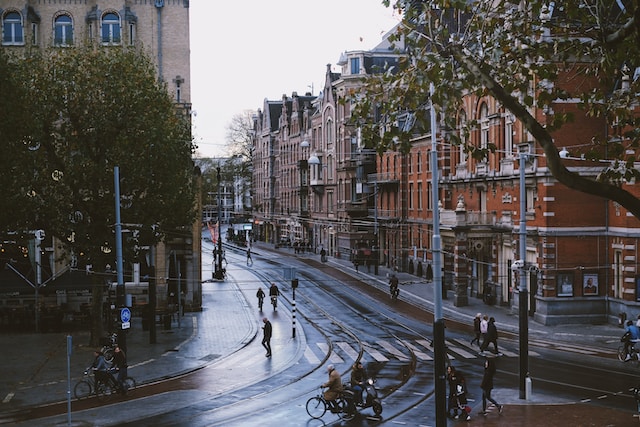
Melatonin levels are also affected by the change in seasons, where darkness produces more of the hormone, making us more sleepy.
In the summer or spring, the body could have exhausted the hypothalamus during the winter months, thus leading to the improper functioning of this part of your brain.
Who is more likely to suffer from SAD?
This disorder has been diagnosed more in women than in men, and it affects younger adults more than older adults. The risk of having the disorder increases if you have a blood relative who has this disorder or another form of depression.
If you have major depression or bipolar disorder, your symptoms can worsen during the same time of the year.
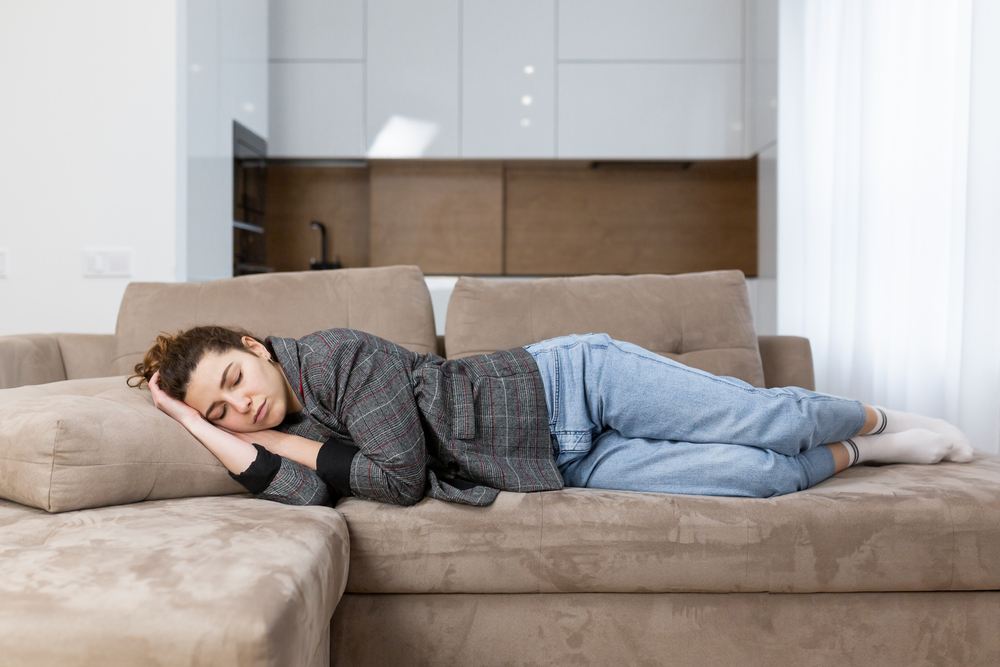
If you have or are at risk for any of the above-mentioned factors, be sure to tell your doctor or the mental health professional who’s treating you.
What can be done to help with SAD?
If you are exhibiting mild symptoms, the following tips may help. But seek medical help as soon as possible before it starts to severely affect your work and quality of life.
Maintaining a healthy sleep schedule
As mentioned before, it can get difficult to wake up in the morning or get to bed at night because of changes in your hormone and brain chemical levels.
If it’s only mild symptoms that you are exhibiting, try to get to bed and wake up at the same time every day. Be sure to get at least 7-8 hours of sleep between the same times. This may seem silly, but sleep affects much more than we realise.
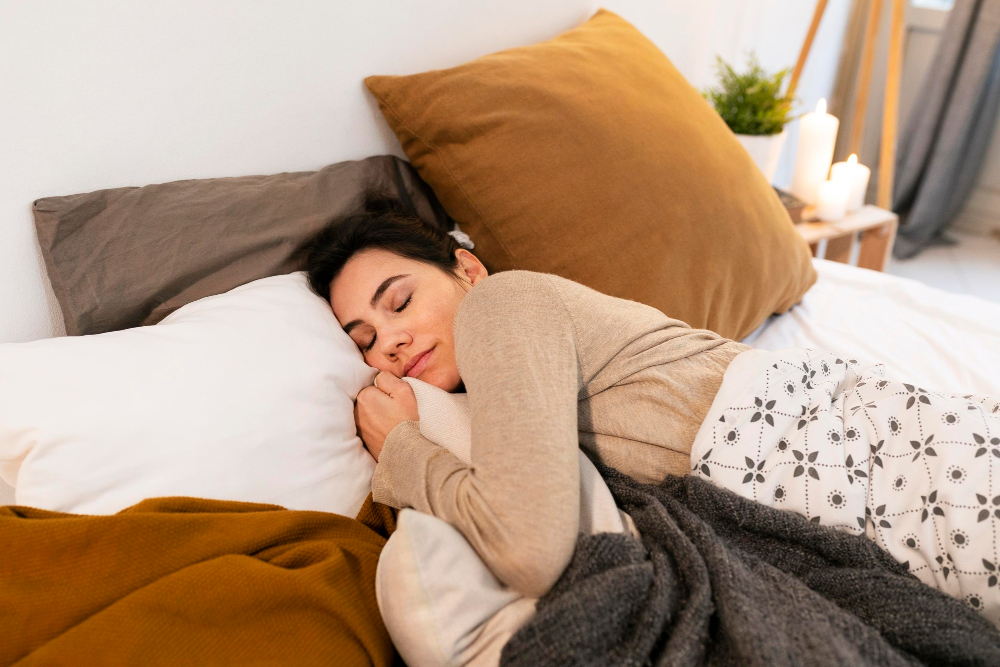
Be sure not to use your computer, stare at your phone screen right before bed, or stimulate your brain too much. Make your room as dark as possible by closing the curtains so that no streetlights keep you up.
To make yourself sleepy as your bedtime approaches, you can take a relaxing shower, have a cup of tea, or get your to-do list together for the next day.
READ MORE | 27 ways to thrive in the gloomy Dutch weather
Bonus points if you want to write down a few good things that happened to you that day! Being depressed can make you feel like nothing is going right, but this can make you realise it’s not all bad. Even if some good things are very small, it’s better than nothing!
Dust off your gym clothes
Exercise, even when your brain tells you not to. Start off small: start with a walk. Remember: anything is better than nothing.
Do this for a week, increasing your distance slowly. Slowly build up your stamina by turning your walks into jogs, and try to keep increasing the distance you cover.
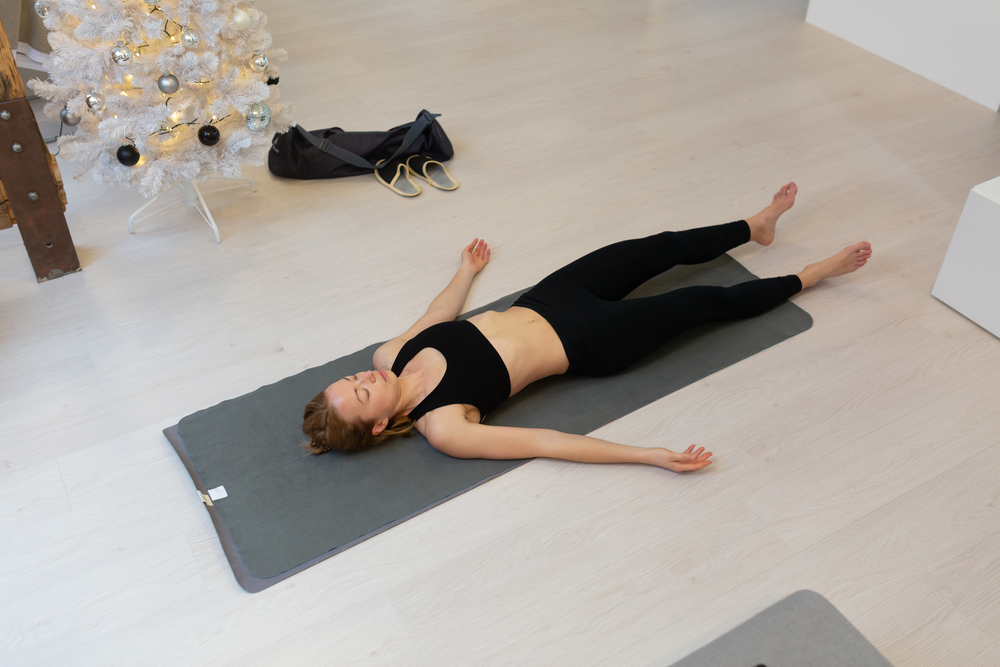
If jogging is not your thing, geen probleem! Your bike is there when you need it. You can also join the gym, take up yoga, try Zumba, salsa, kickboxing, or even rock climbing! Basically, any physical activity is good for you. It is up to you to decide what kind.
Light therapy
Yes, there is something called a SAD lamp (or the more positive “happy lamp”, they both mean the same thing), and you can buy it on Bol! It’s basically a lamp that emits light which mimics sunshine.
SAD lamp, we meet again. pic.twitter.com/ZFug3TNKxG
— andie dyer (@dyerAndie) October 31, 2023
Portable sizes can be bought, and you can keep one in your office and use it throughout the day while you work away at your computer. But be sure to consult your doctor so that it is the most effective for you.
“Sunshine” vitamin supplements
The lack of sunlight can also be linked to vitamin D deficiency. When there is no natural source of vitamin D, like the sun, it is important to incorporate it into your diet.
seasonal depression kicking my ass already, feeling exhausted, drained of energy and motivation, creatively uninspired, groggy and miserable pic.twitter.com/uDAyQe5CyS
— SMINTY (@smintyd) November 2, 2022
The foods which are rich in this vitamin are dairy products like milk (soy milk for the vegans), cheese, and citrus fruits like oranges. Consult your doctor for more options and to consider adding vitamin D supplements into your routine. They can help you determine the dosage.
Rely on your support system
Your support system is the group of people who you can always rely on to take care of you when you cannot take care of yourself.
Living as an expat, especially if you have recently arrived, can be extremely lonely. It is understandable if you feel like you do not have anyone like this in the country yet.
It becomes difficult to be social if your symptoms are really severe, and that is a point you do not want to reach. Moving to a new country is all about breaking out of your shell, right?
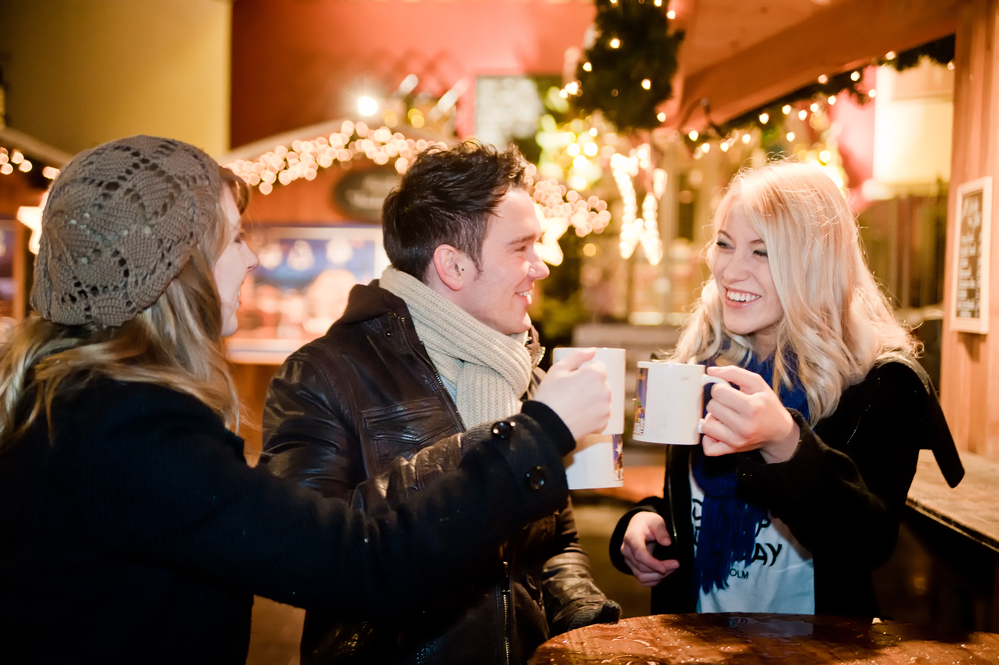
You can build that support system by going to classes (this is where that physical activity tip also comes into good use) and meeting people with similar interests. Invite your co-workers out for lunch, or have them over for dinner.
Or turn that around if you know someone who is new and does not know a lot of people. You know how hard it is to be the new kid on the block. Use your experience so that it is a little bit easier for the newbies. We are all in this together, after all!
Seasonal depression can be very challenging sometimes. When it starts to get tough, sometimes it can help to go back to the very basics: sleep, food, movement, and loved ones.
But, if none of these tips helps you, contact your GP and get help because mental health sometimes needs additional help.
Have you experienced seasonal depression in the Netherlands before? Do you have more tips? Let us know in the comments below!
